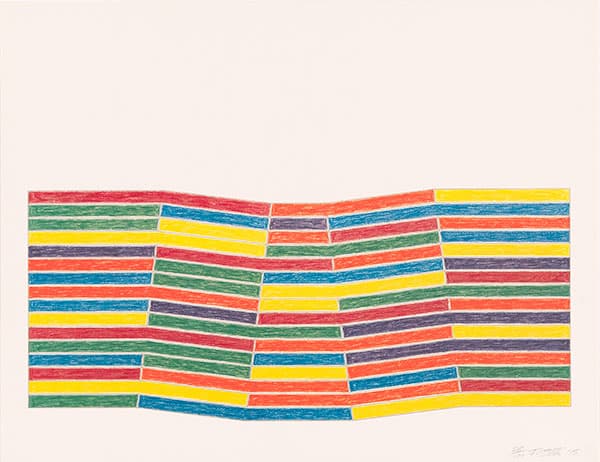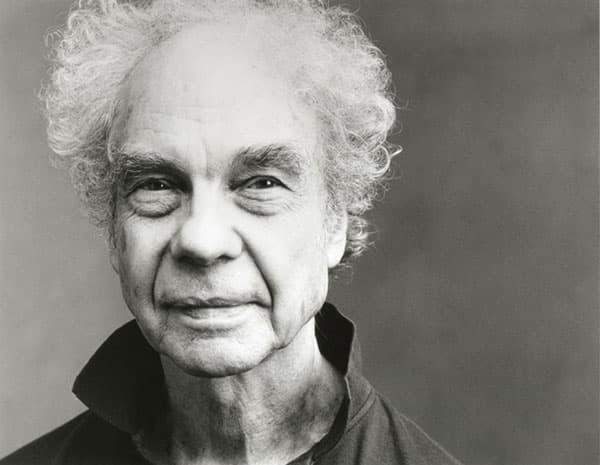American Masters: Merce Cunningham Contemporary Dance Residency
Residency overview | Merce Cunningham | Public Programs | Dancers
Merce Cunningham
Merce Cunningham was a leader of the American avant-garde throughout his seventy-year career and is considered one of the most important choreographers of our time. Through much of his life, he was also one of the greatest American dancers. With an artistic career distinguished by constant innovation, Cunningham expanded the frontiers not only of dance, but also of contemporary visual and performing arts. His collaborations with artistic innovators from every creative discipline yielded an unparalleled body of American dance, music, and visual art.
Of all his collaborations, Cunningham’s work with John Cage—his life partner from the 1940s until Cage’s death in 1992—had the greatest influence on his practice. Together, Cunningham and Cage proposed a number of radical innovations. The most famous and controversial of these concerned the relationship between dance and music, which they concluded may occur in the same time and space, but could be created independently of one another. The two also made extensive use of chance procedures, abandoning not only musical forms, but narrative and other conventional elements of dance composition such as cause and effect, and climax and anticlimax. For Cunningham the subject of his dances was always dance itself.
Born in Centralia, Washington on April 16 1919, Cunningham began his professional modern dance career at age 20 with a six-year tenure as a soloist in the Martha Graham Dance Company. In 1944 he presented his first solo show and in 1953 formed the Merce Cunningham Dance Company as a forum to explore his groundbreaking ideas. Over the course of his career, Cunningham choreographed more than 150 dances and over 800 “Events.” Dancers who trained with Cunningham and have gone on to form their own companies include Paul Taylor, Trisha Brown, Lucinda Childs, Karole Armitage, Foofwa d’Immobilité, and Jonah Bokaer.

Frank Stella Furg from Merce Cunningham Portfolio 1975, stencil screenprint and commercial offset lithograph, 11 runs from 6 screens and 5 plates. Purchased 1979 © Frank Stella/ARS. Licensed by Copyright Agency

Merce Cunningham. Photo by Annie Leibovitz (1997). Image courtesy of the Merce Cunningham Trust. All rights reserved.
Cunningham’s lifelong passion for exploration and innovation made him a leader in applying new technologies to the arts. He began investigating dance on film in the 1970s, and choreographed using the computer program DanceForms during the latter part of his career. He explored motion capture technology to create décor for BIPED (1999), and his interest in new media led to the creation of Mondays with Merce. This webcast series provides a never-before-seen look at the Company and Cunningham’s teaching technique with video footage of advanced technique class, Company rehearsal, archival footage, and interviews with Company members, choreographers, and collaborators.
An active choreographer and mentor to the arts world throughout his life until his passing on July 26 2009, Cunningham earned some of the highest honors bestowed in the arts. Among his many awards are the National Medal of Arts (1990) and the MacArthur Fellowship (1985). He also received the Jacob’s Pillow Dance Award (2009), Japan’s Praemium Imperiale (2005), the British Laurence Olivier Award (1985), and was named Officier of the Legion d’Honneur in France (2004). Cunningham’s life and artistic vision have been the subject of four books and three major exhibitions, and his works have been presented by groups including the American Ballet Theater, Ballet de Lorraine, New York City Ballet, Paris Opéra Ballet, London’s Rambert Dance Company, and White Oak Dance Project.
Always forward-thinking, Cunningham established the Merce Cunningham Trust in 2000 and developed the precedent-setting Legacy Plan prior to his death, to ensure the preservation of his artistic legacy.
Biography provided by the Merce Cunningham Trust


